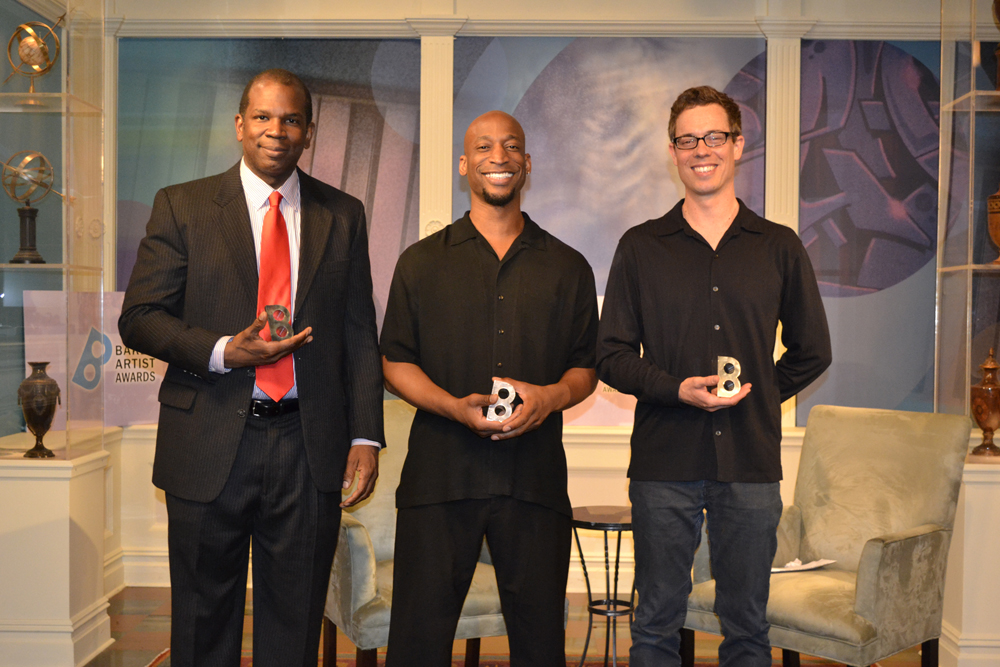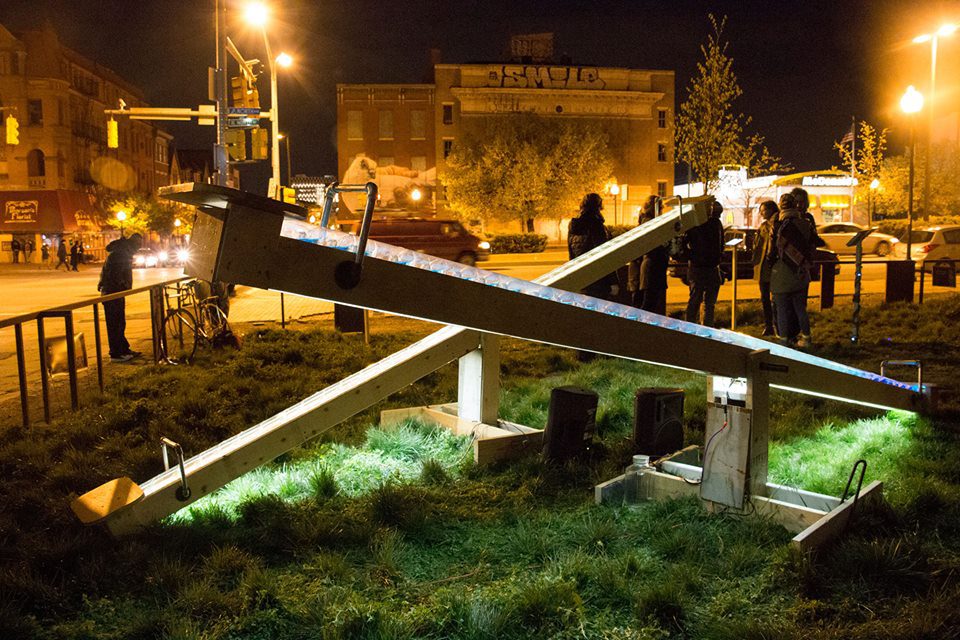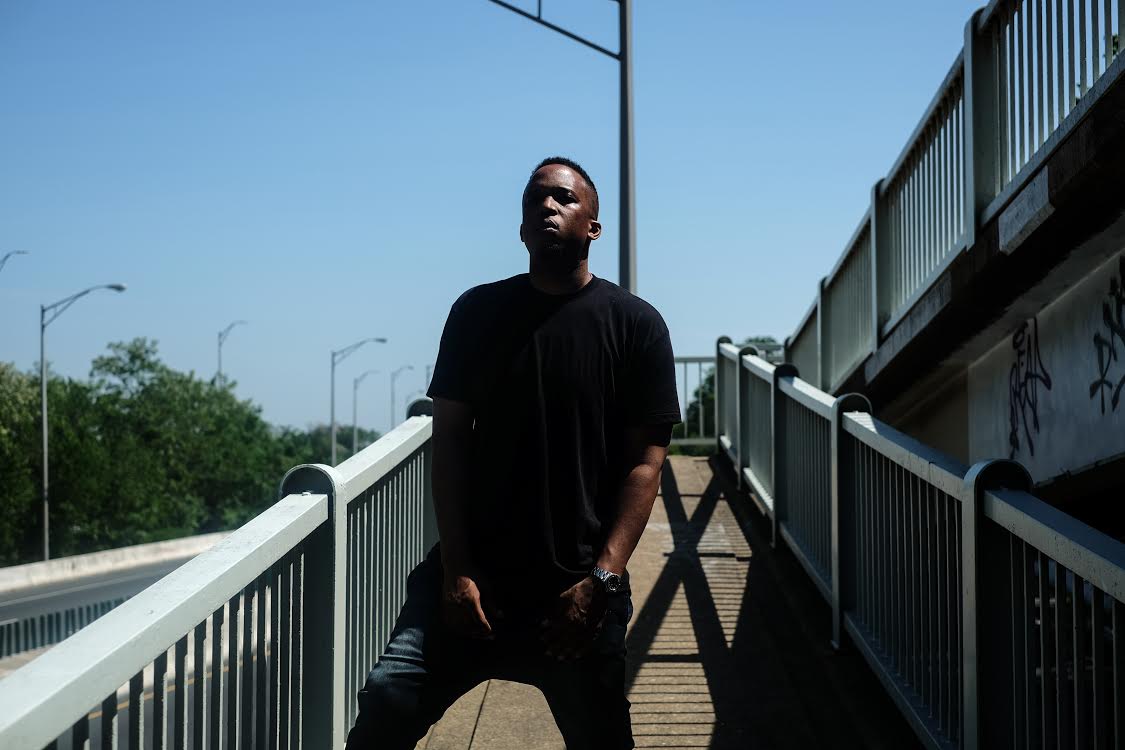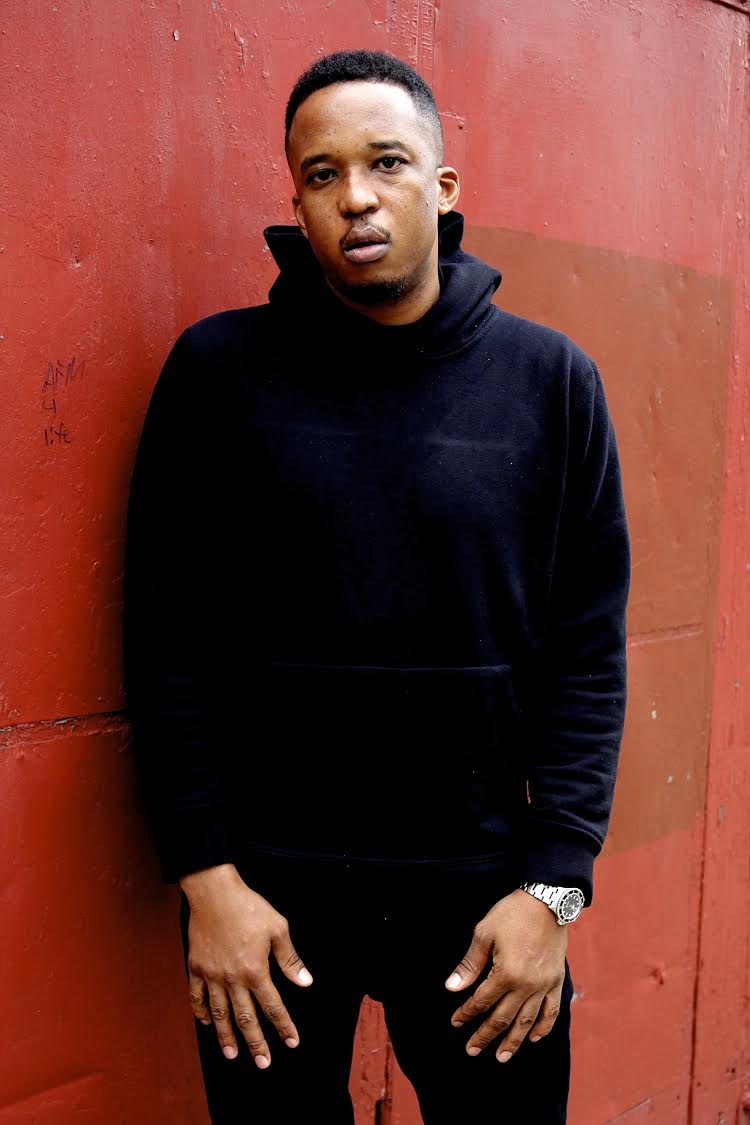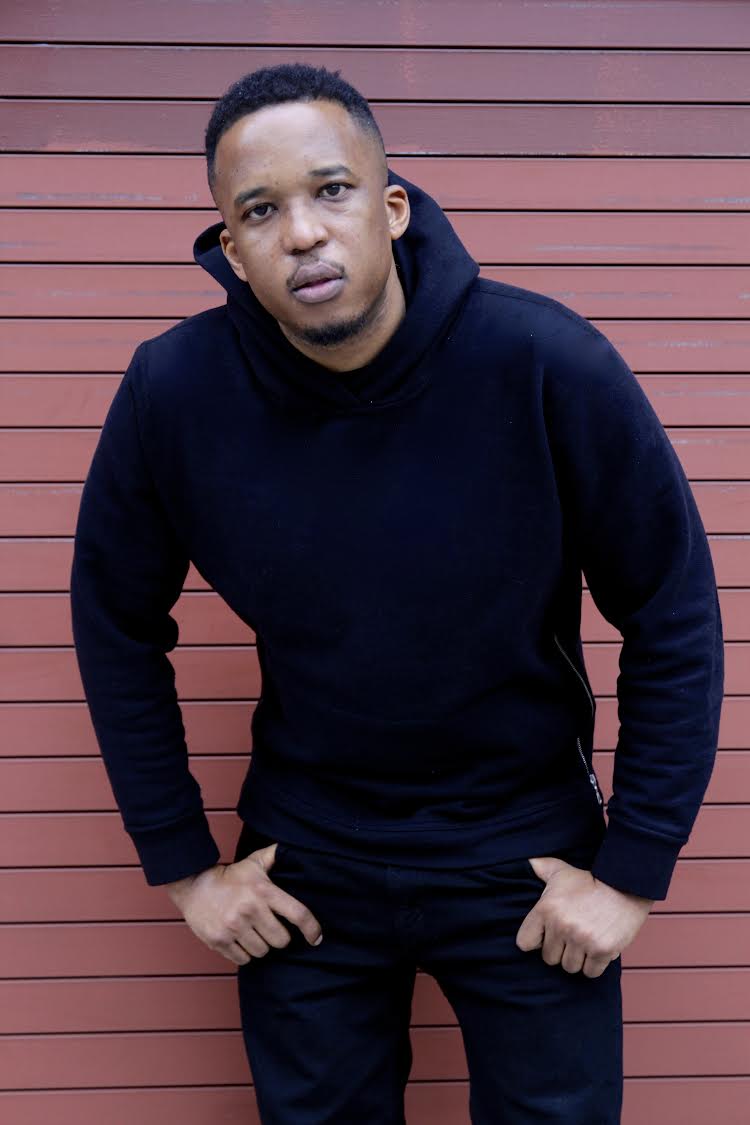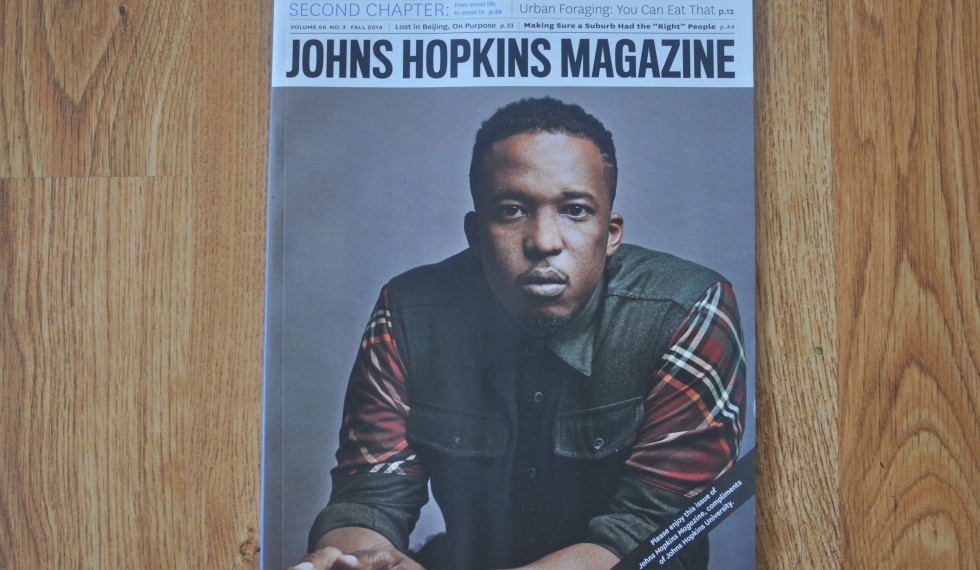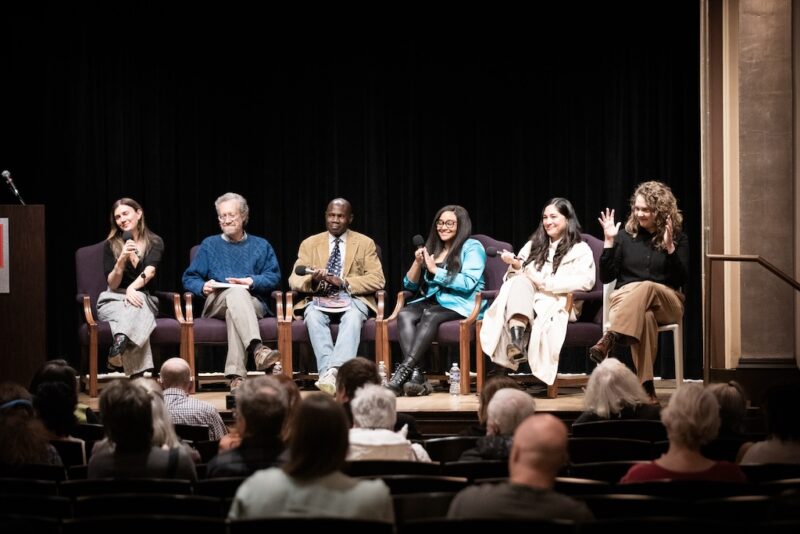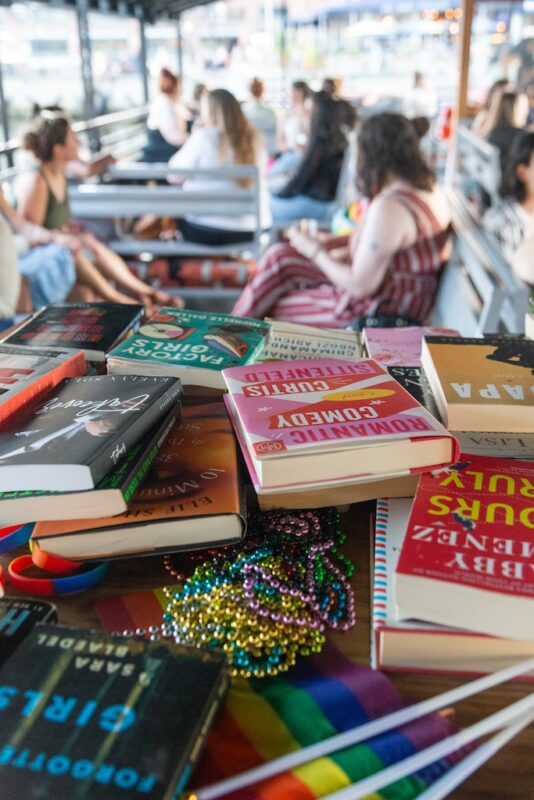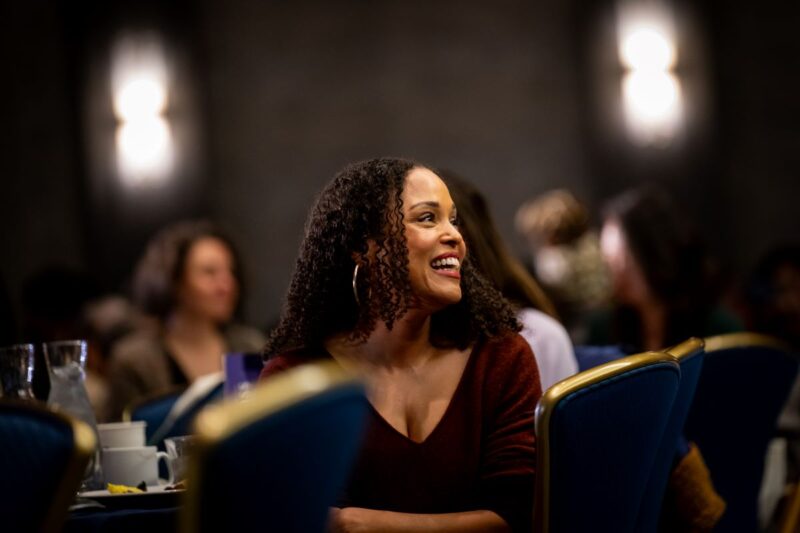For the past five years, D. Watkins, Baltimore’s native son, has been writing the words that many are thinking but are too afraid to say in public. His essay “Too Poor for Pop Culture,” published in February 2014 at Salon.com, all about inequities in Baltimore, made him Internet-famous almost overnight. As a native Baltimorean, I find myself shaking my head in agreement as I read Watkins’ essays, and also trying to figure out who the anonymous, yet detailed, characters are in his non-fictional accounts.
I have enormous respect for the power of Watkins’ writing; his views and opinions as a black Baltimorean are making the white majority intelligentsia (and members of the ‘newfound Baltimore’) stop and reconsider their own preconceived ideas about race, class, and inequity in this city. With clarity and unflinching honesty, Watkins questions the prevailing ideas and opinions of much of his reading audience, asking if they have ever been applicable to citizens who looked nothing like them and lived lives that are the complete opposite of theirs.
We meet at Red Emma’s, where Watkins can be found pounding out essays several days a week, to have a conversation. I listen as he walks me through some of his life’s work, veering from a misunderstood, illegal job in the streets of Baltimore’s East Side to his recent stroll back in that same neighborhood with CNN’s Don Lemon.
JB: You spoke a little bit about your childhood at Johns Hopkins a few months ago, but outside of that I don’t think that I have read much about your formative years.
DW: My childhood was like any other kid from East Baltimore. I loved basketball and dirt bikes… I always had a crush on the prettiest girls. I came up and stayed with my older brother Bip who was murdered, and I stayed at my grandmother’s house on and off… I was back and forth between homes. But home was wherever I wanted to be and I feel like that freedom just showed me how important it is to explore, and also the way different people operated. That was way before I even thought about being a writer and an artist. My family is full of really, really strong women, who, in their own right, were the backbone of the community that we lived in. All of these strong black women who were really consistent. A lot of my uncles needed help with bail, needed help with school, and were in between jobs. There were a lot of inconsistencies with a lot of men in my family, but the women, they never missed a beat!
JB: That’s a common theme in a lot of black families, whether it is the failed school system or the prison system…
DW: It’s never talked about though. I dabble in still photography and I am trying to put together an exhibit just documenting their strength. I know so many dudes that might treat a woman bad, but as soon as they get in a financial bind they’re asking you to call them on their girl’s phone.
JB: Your narrative is all over the place: Dunbar, Loyola, Hopkins, and University of Baltimore… You owned a liquor store…?
DW: I think I went to every school in the state of Maryland! I went to Highlandtown Middle School. I stopped going to Highlandtown because all of the 6th graders had disciplinary removals, and my family was like, ‘No you can’t go there.’ I had great grades coming out of middle school and, despite what I went through in high school, I still got good grades.
I started high school at Mervo, but got kicked out. Then I got home schooled for a while, and then I went to Lake Clifton… I didn’t last a week! Too many friends and family there; I knew Patterson would be even worse so I went to Dunbar. I could’ve gone to City or Poly but I chose Dunbar because it was right across the street from the Douglas Housing Projects right by Somerset Housing Projects. All my family and friends went there, it had a great basketball legacy. Dunbar had a couple of teachers who thought I had some skills and they helped me develop the other skills I needed to do well on the SAT’s.
Both my brother and my mom wanted me to go to college. They didn’t want me to be a street guy. I put the work in and worked with a counselor. I got into Georgetown and a few other good schools, but after Bip was murdered I decided not to go because I was depressed.
After some family and friends showed me some love I gave college a shot. I went to Loyola but it didn’t last that long. My whole life I thought that college was going to be like “A Different World.” But, everyone around me persuaded me that the world isn’t all black and you need to interact with different types of people. So I didn’t attend a HBCU.
JB: I wonder if that is ever said to white kids? Don’t apply to the school of your dreams simply because its all white.
DW: Hell no!
JB: The “Different World” thing is interesting. When I graduated from MICA my thesis was called Cosby Sweater and it was a branded T-shirt line. I find it interesting that we both looked to TV for our ideals.
DW: TV raised us! But, I always thought that they [The Huxtables] were too cheap, though. I thought they were boring and I thought their house was boring. Like, Theo had to get his sister to make his shirt? That felt ridiculous to me. We were in the hood, so I wasn’t thinking about how they lived in New York, had a huge brownstone, Cliff was a doctor which meant he paid crazy insurance, and they had 100 kids…
JB: So you went to Loyola, how was that for you?
DW: I made a couple of friends at Loyola. One dude even came to my neighborhood. He was the first person to take me to Bolton Hill. I didn’t even know what that was! I said, when I get my money up I want to live here. It was like some Cosby shit, they lived in a brownstone. I thought about who won and who lost in my neighborhood. And I thought about how I defined what winning and losing even are.
My brother left me some money and product and I saved up a lot of money because I began selling drugs with a friend who worked at a dialysis clinic; someone who never thought about selling drugs in his life and a patient of his whom he shared my story with and guaranteed that I could move it. He gave it to me and told me that I could come back and get more. The patient who I got it from told me that I needed to begin to consider some other avenues, and it sounded strange coming from the person I was getting it from, but it made a lot of sense.
When I grew up there were a lot of guys that I heard of, like Milton Tillman, that owned bars, bail bonds places, and other real estate and like ten houses, and were making a lot of moves… So I took the money that I saved up and went to a fly-by-night mortgage place, back when anyone could get a loan, I had the cash. Despite a few things on my credit I qualified for a special type of loan called a “no doc loan.” They didn’t take documentation – they just put a larger amount of money down and you got the spot. It ended up not being a no doc loan when I met with the Hopkins Federal Bank in Reisterstown. I told them that I inherited a lot of money but that I didn’t have a lot of experience. The place was 150k and I put down half. I had my money in a bag. I didn’t have a banker’s or cashier check! I didn’t know the way this stuff worked!
But, that bar / lounge business wasn’t that lucrative. I couldn’t compete with the Korean business owners. I was able to sustain the business for a while through bridal showers and other parties, stripper nights and poker machines! With the money from the streets and the poker machines I bought a house. Now I had legit credit. I financed a CL 600, and I bought a house at 240 Wilson Street. That was a big thing for me. I had an expensive car but the windshield wipers were like $100. Just ridiculous! But the novelty wore off that shit!
JB: So you sold the business… fast forward to 2010. You went to a literary conference in London with Buck writer MK Asante. Tell me about your friendship.
DW: We built a friendship playing basketball. And, that trip with MK was transformative for me. I didn’t get it until then. That’s when I knew.
I always loved history and I loved Leon Litwack and Eric Foner’s writing about the reconstruction era. My grades from undergrad were pretty good, and I had great letters of recommendation. I wanted to get my PHD in history from Hopkins. So I applied to two schools. UMBC and Hopkins. UMBC said hell yeah! Lets get it! Hopkins said no! I told my advisor Eric Singer, who now does research for Oliver Stone, and he was like, “Fuck them, you don’t need to go there, UMBC has a great program.” I was like, “Nah man this is a 5 year PHD with a stipend and I deserve this!” So I called them up and asked who made the decisions. So I got a meeting with someone there and at that point in my life I felt like I was a great communicator and I knew if I could talk about it I could get in.
We had a great conversation and he said, “What you are telling me now is what you should have articulated in your application but you didn’t…” So he told me to wait it out for a year and to keep working, then I found out that they only let 11 people into the program each year. So it was very competitive but it wasn’t a guarantee.
So I went to the school of education and that’s when I met Asante and that’s when I was like, “ I love history but I want to take a shot at writing.” I finished the program in a year by taking five 800 level course credits a semester. When my advisor found out, he said he would’ve never let me register for all of those classes. But, I didn’t want to be there any longer. And that’s when I got the MFA from UB. As a first year grad student I had an agent, as a 2nd year student I published a bunch of pieces, 3rd year I had a book deal. My goal was to sell a book before I graduated, and I did that.
JB: Tell me about your writing process. Do you listen to music? Go out and look at art? What do you do to get inspired?
DW: I listen to a lot of jazz. I love Charlie Mingus, Coltrane, Miles of course. And Sun Ra. Sun Ra forces me to think on different levels. I don’t have one go-to artist. People on the street people who survive, people who are living through an insurmountable amount of pain, but still find a way to find joy and happiness inspire me. They light a fire in me! Humanity! Fashion, people’s style of dress… It gives me a reason to think and to just want to move forward. I am that guy who writes in bulk. I am that guy that writes 100,000 words and then gives you 30,000.
JB: We see that Jay Z has made art collecting cool. Especially Basquiat. How do you reach the kids and make, say, getting an MFA cool?
DW: If you want to get an MFA that’s cool, but my goal is helping young people develop strong critical thinking skills so they can analyze and figure out what it is that they really want to do. We always tell kids to DREAM. You can dream but let’s help kids learn the skills necessary to make your dreams a reality. That, in my opinion, is what we need to be doing. That’s what I try to put my attention on. It’s a lot of living black artists too! Basquiat was great but there are other great artists that need attention too!
JB: There are lots of talks about silos in the art world in Baltimore. Specifically around race and even different media. So are you doubly crippled in that respect as a black writer? Do you think you could have a sustainable career here in Baltimore writing for a publication?
DW: The City Paper offered me a column three times before I took it. They love the way I write. I am also a columnist for Salon. I am a life-long student. I want to be the best I can be. I feel like I am the type of writer that can use my personal stories to address bigger things in the community. But, then, also I can write a manual for how to use an iPhone, I just haven’t had the opportunity. I wrote a memoir. Culture Vulture just asked me to write a review of the Prince concert. And, as I grow I am going to write about different things. But, I don’t have a ton of money and resources, so if I went to Paris, I could document culture and fashion love and life whatever… if I had the opportunity. I am working really hard to get those opportunities.
JB: So you don’t always plan on being the Baltimore guy in Baltimore writing about Baltimore?
DW: I would like to be in Baltimore and I would love to write about Baltimore, but I don’t want my role in Baltimore to just be the Baltimore writer. I want to be able to get to a level where I am able to introduce new writers to the world. A lot of people want to pay me to write things. But it’s impossible to continue to be connected to that pain when you are not really experiencing it and other people are. I don’t plan on being a super rich tycoon but I know that I am going to evolve and I want it to be my job to provide opportunities to the new writers who are experiencing it.
When I wrote “Too Poor for Pop Culture,” I only had $30 in my bank account. I have more than $30 now, so I can’t feel the frustration I felt when I wrote that essay, it’s impossible. That’s why I push literacy and I know writers in high school who have me as a resource to push them and tear them apart and to praise them when they do something amazing. It’s my job to tell them how to get the opportunities that I have gotten. And it’s my responsibility to make them pass these skills onto someone else.
One of my issues with what happened a few weeks ago when all of the famous people were in Baltimore was that Freddie Gray couldn’t talk to Al Sharpton. He couldn’t get a minute from Jesse Jackson. Why the fuck do you want to sing his praises now? I say, lets lift as many people up and give them the resources while they are here instead of having photo ops when they have passed away.
In The Guardian, I wrote about the black crisis clergy. It’s like a tour, a black body tour. And, I am not going to demonize them, but I am phony if I don’t do something to tell these stories. And I feel like narrative story telling is important for democracy. Its important for the world – we need it! How can I tell the world something like “Jermaine gets excited when his appetizers come at a restaurant,” if I don’t actually know that to be true? It might be true. But, it’s not fair!
JB: It is true! I do!! So you’re not going to be the 40-year-old dude at the club trying to be cool?
DW: Nah! I want to be the dude that has put on 140 dudes! Because I know that culture changes. I like to travel and have experiences… I am a life-long Baltimore resident but this pen has taken me places and I intend for it to take me even more places. I also have to see other parts of the world so that I can bring these stories back. I stayed in Abuja, Nigeria for like three weeks. It made me smarter, and I appreciate things more. It added a new layer for me.
JB: Huey P Newton said, “ If you stop struggling, you stop life.” Do you adhere to that philosophy? Or do you want to chill some day and sip some red wine?
DW: I mean I sip red wine now! But I feel like there is always going to be a struggle. I want to help to create change on a higher lever. I want to see shit flip and change. Locking up these six stupid cops doesn’t stop a racist system that has been in place for years. It’s not enough! I can help spark the minds of some young people who might see change in their lifetime. There were probably writers like me 15 -20 years ago but the Internet wasn’t really popping like that so they couldn’t get their stuff out in that way. I just see myself as part of the process.
JB: What things do you want to see in Baltimore change? What do you want to stay the same?
DW: I want opportunity to stop being exclusive. People don’t want charity, they just want to be able to apply for a job even if there name is Tyree or Keon or…
JB: … Jermaine
DW: or Jermaine! (Laughter)… We are still fucked up about this broken glass, and people being locked up for the war on drugs. We need systemic change… Statistically, a black person that has a degree from college has a worse chance getting a job than a white person that has been to jail. Our lives are being rearranged because of urban renewal and gentrification and the social fabric is gone! It’s a disgusting mentality in Maryland; they feel like if you are a renter then you don’t have a community. If you don’t have the resources to buy a house your voice is irrelevant. I am trying to get rid of all of that!
JB: How do you feel about a lot of the artists that are gaining notoriety that are white and are covering the happenings in Baltimore?
DW: I feel that any white artist that is profiting off the black community has the responsibility to share those skills. I don’t care about a white artist if a white artist is teaching a black kid to use a SLR or get the best paint stroke. If you are sharing skills then it’s cool. And, black artists should do the same thing. That becomes a humanity issue. I don’t think any gender, or class owns art, but if I was teaching at Duke University and I had a class full of lacrosse players, I am on their turf but I am responsible for delivering my skill and that is love.
JB: Do you feel like Nostradomus when it comes to your writing? You have been writing about this from my knowledge for at least over a year.
DW: I have been writing about this for 4-5 years. I don’t think I deserve a medal but everybody that writes these types of articles needs to have these conversations but not just talk. We need conversations centered around solutions. If I am just talking about it and not doing anything it’s a great contribution but not enough. I wrote “Cops Kill Niggers in America” over two years ago and it had a long list of unarmed black people that were murdered, a long list.
JB: Do you still get push back for your candid thoughts on race? Do you get the thing that I have been getting after the Freddie Gray / Baltimore riots where you are the villain for being candid and asking people where they were two weeks ago when CNN wasn’t here for black issues?
DW: I get death threats. My New York Times article about Freddie Gray got death threats, my article about the National Anthem got like fucking 200 death threats!
JB: I can imagine…
DW: I get push back from black scholars, affluent people, and racist people. But, a lot of my essays do well in high schools. So that’s the win for me. I don’t care about an Internet thug with a fake profile picture!
JB: Who would you say is your core audience?
DW: I would say after high schoolers it’s left leaning people. Conservatives don’t really feel me until I have a conversation with them. THEN I actually get respect from them. A lot of people thought that Don Lemon would make a mockery of what I am doing. But, when we had a conversation I told him that I document my culture and my ideas are valid, and if you challenge me and tell me to look at it in a different way, then I will acknowledge that. The next day he called me back and I took him to my neighborhood. I took him to Monument Street and we had a great conversation.
JB: So the hood has love for D Watkins right now?
DW: Hell yeah! Way more than corporate America does! I even tell people, “You are in this article that I wrote.” So, when they were able to see me be vocal about some of those ideas on TV a few weeks ago, it enhanced that love to a different place… from a friend I know who writes stuff to a friend who is on TV saying things that people in mainstream media would never say.
JB: I get that. I am a working class black guy who went to MICA and my parents never really get it until they see the fruits…
DW: But once they see it visually, its like “OK.”
JB: Yes! Do you think of yourself as an artist?
DW: Definitely, I am also a painter, but I don’t exhibit…
JB: Would you want to share those paintings with the world via BmoreArt?
DW: …maybe…maybe… I get enough push back from writing!
JB: Do you ever find yourself in the intersection of the new Baltimore as you called it, and old Baltimore? If so what do you like about the new Baltimore?
DW: I love the emerging art scene. I love the people who are being innovative, not the people who don’t love the craft, ‘cause right now its cool to be an artist. Its cool to be a dude with a nose ring!
JB: Why do you think that is? Why is it so hot right now?
DW: Partially hip-hop. Jay Z has had his finger on the pulse for like 15 years now. You can actually never make art and call yourself an artist. Canon and Nikon sales are probably at an all time high right now. To call yourself an athlete you have to be able to lift 500 lbs. and dunk a basketball over 8 people. To call yourself an artist you can say things like, “ I don’t know my medium, and I am just trying things out,” but I have cool shades. If you are going to do it, do it! Don’t call yourself a photographer if you don’t fuck with F-stops!
JB: Will you be the next David Simon? What did you think of The Wire by the way?
DW: As an artist I loved The Wire. As a person, I thought it was missing some human elements on the street side. A lot of the gangstas were really one-dimensional to me, but overall the show was brilliant and I’d love to follow in Simon’s footsteps.
JB: As a Baltimorean, the Juliard-trained accents threw me off. They didn’t sound like they were from Baltimore to me!
DW: Maybe that was it…
After our conversation ends, Watkins and I shake hands and head out of the door. We walk our own separate ways in the balmy, pre-summer heat. As I looked back and saw him walking slowly down Maryland Avenue, cell phone to ear, it dawned on me that the reason that his voice is so important is because he actually walks down the very same streets that he writes about in his essays.
Author Jermaine T. Bell is a Baltimore-based Freelance Visual Designer.
Photo Credits: Top image by Devin Allen and two portraits by Kyle Pompey
